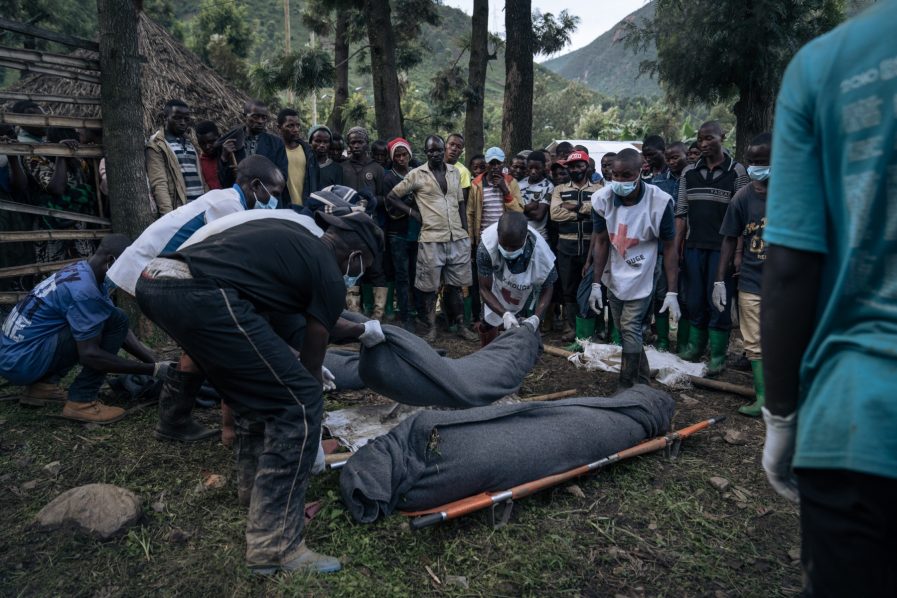
The provincial governor of the east Democratic Republic of Congo on Monday said the death toll from floods that devastated two villages has reached 401.
Theo Kasi said this flood had become one of the deadliest natural disasters in the country’s recent history.
Local civil society sources said more bodies were being recovered on Monday, adding to the scores of others that were wrapped in bags and piled into mass graves over the weekend.
The villages of Bushushu and Nyamukubi in Kalehe territory, South Kivu province, were inundated on Thursday after days of torrential rain triggered landslides and caused rivers to break their banks.
At least 176 people were reported dead on Friday as humanitarian workers dug through the remains of the flattened villages to recover mud-caked bodies from the debris with hundreds of people still missing.
The governor told Reuters on Monday the death toll now stood at 401 without providing further details.
Civil society representative, Christian Bazibuhe said “it is the worst flood we have ever had,” adding that bodies were still floating on Lake Kivu.
The central government in Kinshasa has not yet communicated a death toll.
It has sent a delegation to Kalehe and declared Monday a day of national mourning.
The United Nations’ humanitarian agency OCHA said on Sunday that at least 270 deaths had been confirmed so far with more than 300 people still unaccounted for, while around 3,000 families have lost their homes.
According to United Nations climate experts warming temperatures due to climate change are increasing the intensity and frequency of Africa’s rains.
It said this can increase the destruction wrought by the floods and landslides that were already common in South Kivu.
Poor urban planning and weak infrastructure also make it more vulnerable to such events, it added.
Congo climate activist Josue Aruna said the government does not consider environmental issues a priority, denouncing the lack of response plans.
On Saturday, U.N. Secretary General Antonio Guterres described the floods as “another illustration of the acceleration of climate change” and the impact on nations “that have contributed nothing to global warming”.
More than 8,800 people have been affected by the floods in Congo, according to the Congolese Red Cross that said of the 274 people buried so far, 98 were women and 82 were children.
Congolese Nobel laureate Denis Mukwege called on the government to ensure victims were given a dignified burial.
“Bury them individually and not in a mass grave,” he Tweeted on Monday.
Follow our socials Whatsapp, Facebook, Instagram, Twitter, and Google News.








